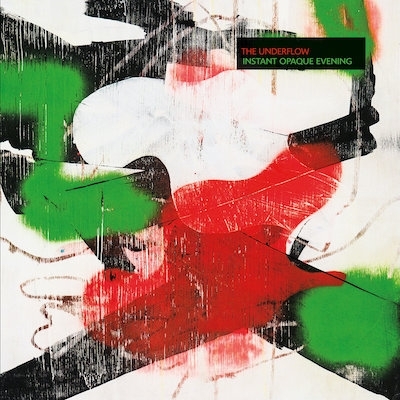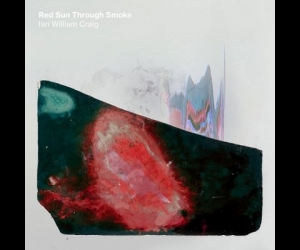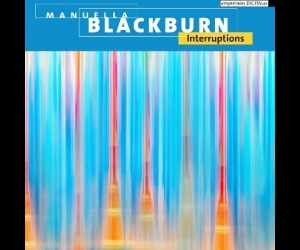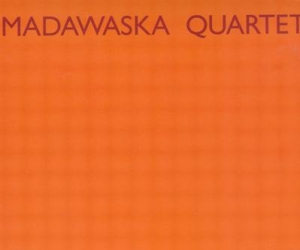
An evocatively named trio, the Underflow brings together three stars of the global experimental music scene, all with long-running ties to the city of Chicago: guitarist David Grubbs, saxophone virtuoso Mats Gustafsson, and cornetist Rob Mazurek. One senses the presence of the undertow in the “underflow,” and memories surface of swimming in the Atlantic Ocean as a child, getting thrashed around the sandy floor in the ocean’s flow velocities—the dangerous edge of that sense of bliss that Freud famously dubbed the “oceanic feeling.”
The group actually takes its name from the Greek record shop at which the trio played its first gig. Nevertheless, the music here—generated in live performance in January 2020––does bear some traces of the undertow’s firm hand, and to the transformation of that intense pressure into something more pleasantly diffuse and democratic. Even as seconds of silence pass between small, focused gestures, the listener is aware of some undeniable momentum or physical force, perhaps the manifest charisma of the Underflow’s members, perhaps something else also. Grubbs sticks mostly to clean-toned electric guitar but is not afraid to summon harsher textures. Gustafsson and Mazurek play both acoustically and with the aid of the para-instrument that has come to be called the noise table: little mixing boards, microphones, effects pedals, and other gizmos. Some of this is audible in the music we hear on this disc: dubby delays and echoes, self-oscillating fuzz, indiscernible fussing amplified above the audible threshold.
The title track sets the agenda well. It begins as a slow-paced affair, calling to mind the U.S. experimental rock group Earth and other specialists in the counterclockwise reaches of the metronome. Guitar and cornet in unisons splinter off into delayed reiterations. The rhythmic support Gustafsson contributes reflects the influence of his musical and artistic mentor, trombonist and cellist Günter Christmann, the saxophonist here applying his own distinctive fast-tapping key clicks, mouth-piece tongue-slaps, and amplified heavy breathing. Grubbs enters with tremolo guitar, a secret weapon deployed beautifully throughout the record, the fast-beating square-wave modulation familiar from so many surf records now repurposed as a fluttering hummingbird tying a knot around the exertions of the two horn players. The relative stability of Grubbs’s pitched material—at the very least, the presence of something like a tonic chord or modal centre––in this and many of the other pieces allows for a level of lyricism from Mazurek and Gustafsson that is most pleasing, calling to mind Miles Davis’s experiments with multitrack recording in the late 1960s and early ’70s, as well as some of the wilder entries in the Sam Rivers catalogue.
Other highlights include a muscular take on Grubbs’s “An Optimist Declines” from his 2008 LP An Optimist Notes the Dusk, with Gustafsson and Mazurek ably providing a horn-driven version of the original; “Planks,” which finds Mazurek weaving a gorgeous, brittle melody around the most diaphanous of accompaniments; and “Self-Portrait as Interference Pattern,” which leads the listener to an odd corner of town, where fire hydrants spew gushers of Merzbow-esque noise as a spirited gospel meeting spills out of a storefront church. As with most of these pieces, I’ve never heard anything quite like it. A most enjoyable underflow.


